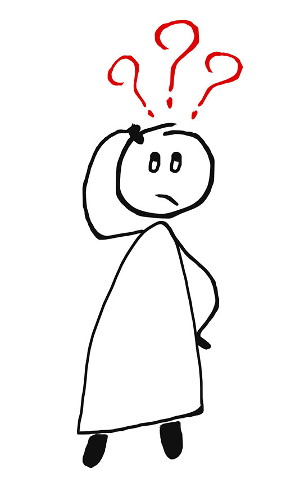
But that is there. I want to write more about diagnosing your autism here in the Netherlands. Is it a thing to do? Is it necessary?
Self-diagnosis versus an official diagnosis
Is it possible to diagnose autism yourself? In my opinion this is partly yes and partly no. Look, you can recognize yourself in, for example, a symptom list of ASD, but that doesn’t necessarily mean that you are autistic. Psychiatry is a world in which we are still discovering a lot about the different ways the brain works. That’s why new diagnoses are constantly being developed and old diagnoses are being removed. Such a diagnosis is my own. When my diagnosis was made by the ATN, it was “Asperger’s Syndrome”. However, this diagnosis no longer exists since the introduction of the DSM-V.
Nowadays it is all under the diagnosis “Autism Spectrum Disorder”. Psychiatrists around the world are constantly reviewing these diagnoses to see if they are correct. So it may also be that the information on which you have made your own diagnosis is outdated by now. The internet is a great place to find information, but many people don’t stop to think about where the information comes from and whether it’s still correct.
If all goes well, medical professionals who make diagnoses have the latest official information about the diagnoses. They can also look at people in an objective way. They don’t have one diagnosis in mind, but look at many possible diagnoses. Even diagnoses you don’t know. In my opinion, they are the right people to judge whether there is “something”, and if so what that “something” is.
In the Netherlands, in my opinion, there is no reason not to get an official diagnosis. If you think there is “something” with you, or that is autism or any other diagnosis, we have access to a medical system where you can get a diagnosis.
Is it that easy?
Maybe I’ll make it sound like it’s easy to get a diagnosis up here. But there are plenty of stories from people who have been trying to get a diagnosis for years. So no, it’s not a question of going to the doctor and getting a diagnosis under your arm. And I think that’s a good thing too, we shouldn’t take lightly anything that affects the rest of your life.
However, if it causes problems in your life, if you notice that it “something” affects your daily life, it is possible to get help with this within our country. Even if this sometimes means that you have to fight a battle with people who are not very familiar with autism. Unfortunately, it is not yet known among some medical professionals that women can also be autistic, for example. For example, I once spoke to a doctor at the GGZ who said that I couldn’t be autistic because I made eye contact. The fact that I looked at her nose, and not her eyes, clearly never occurred to her.
But by giving more and more voices to the autistic community, informing people about autism, and also the international organizations fighting for acceptance of autism, we can ensure that more people have access to the correct diagnosis.
Isn’t self-diagnosis worth anything then?
If you are almost one hundred percent sure of yourself that you are autistic, then you can call yourself an autistic person. But if you live in a country like the Netherlands, where it’s relatively easy to get an official diagnosis, you should try to get one. This, because it can help you to get access to the care you need. But also because, in my opinion, there is no reason not to get that diagnosis.
Self-diagnosis, however, can be a sensitive point for some autistic people. They feel that you have not made the effort to get a diagnosis, as they have. They can see it as someone trying to pull autism into the ridiculous. “Yes you can, because I’m autistic too and I can do it.”
People who use their self-diagnosis in this way are also the reason that some people are so against self-diagnosis. I myself also hate these people. For example, they call a technical helpdesk of an internet provider and say that they are a system administrator. In spite of the fact that they just know how to turn on a computer… It’s the people who call the customer service to end a contract and say they’re a lawyer…
In the Netherlands in my opinion there is no reason not to have a diagnosis made by a professional. Doesn’t that make Self diagnosis worth anything? No, it doesn’t. But why be satisfied with a suspicion when you can have it confirmed? After all, it doesn’t change who you are?